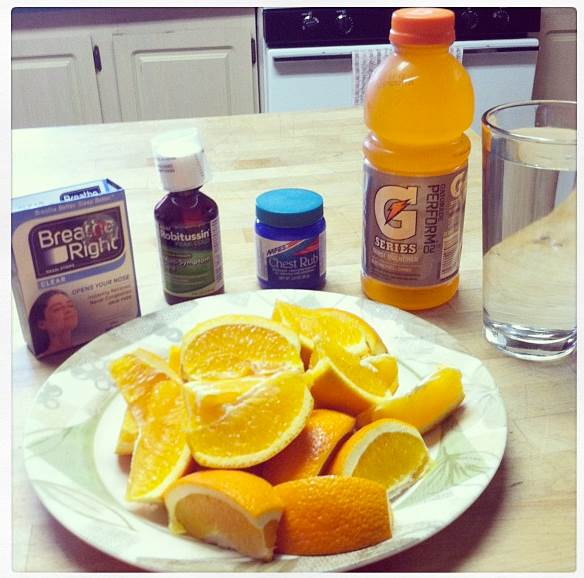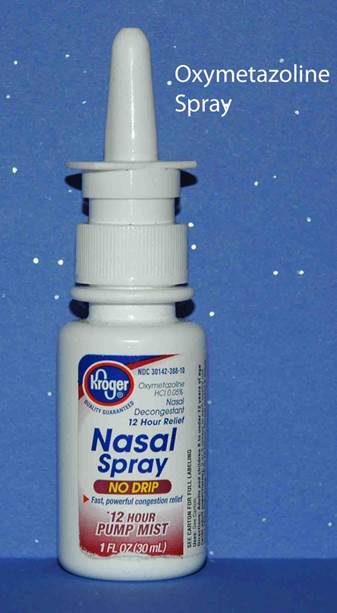Here’s a news flash:
there’s still no cure for the common cold, which can be caused by any of more
than 200 viruses. But that didn’t keep Americans from spending $4.2 billion on
nonprescription cough and cold remedies in 2011, according to the Consumer
Healthcare Products Association. Some may make you feel better; others won’t.
This guide should help you cope with the discontents of winter.

Americans spent $4.2 billion on
nonprescription cough and cold remedies in 2011
First, to minimize the
chance of catching the flu, most people at least 6 months old should get
vaccinated every year (flu viruses change annually, and so does the vaccine).
An exception: people allergic to eggs, since the vaccine is grown in eggs. Wash
your hands often, and get plenty of sleep. If you do get sick:
For a cold
Rest, drink liquids,
gargle with warm salt water, and use a neti pot to flush the nose with
distilled saltwater; suck on non-medicated lozenges or swallow a bit of honey
(don’t give lozenges to young kids or honey to babies under 1 year old); and take
a bath or shower to let warm, moist air loosen phlegm. Try over-the-counter
pain-killers such as acetaminophen (Tylenol and generic) or ibuprofen (Advil
and generic) for aches and pains. Echinacea, vitamin C, or zinc lozenges might
shorten the duration of a cold, but they won’t’ keep you from getting sick. And
although earlier research hinted that vitamin D might aid against respiratory
infection, a well-designed clinical trial published in October in the Journal
of the American Medical Association found that vitamin D won’t help adults ward
off or recover faster from the common cold.

Vitamin D won’t help adults ward off or
recover faster from the common cold.
For the flu.
Rest and drink fluids.
Use over-the-counter painkillers, and consider taking elderberry fruit extract
and n-acetyl cysteine, which some research has shown might relieve flulike
symptoms. Children younger than 5, adults 65 and older, pregnant women, and
people with suppressed immune systems should see a doctor immediately if they
have flu symptoms. A prescription antiviral drug such as oseltamivir (Tamiflu)
may shorten the duration of the illness by a day or so if started within 48
hours of symptoms. Consult a doctor also if you develop trouble breathing or if
an existing problem such as diabetes or asthma grows worse. Most other people
shouldn’t need to see a doctor. Antibiotics won’t help a flu or cold: they
treat bacterial infections, not viruses.

For
the flu: Rest and drink fluids
How to tell the difference
|
Illness
|
Onset
|
Symptoms
|
Fever
|
Severity
|
Duration
|
|
Cold
|
Gradual
|
Sore
or scratchy throat, then runny or stuffy nose, sneezing; finally a cough;
fatigue.
|
Low
or none
|
Mild
to moderate
|
A
week to 10 days, but cough can linger for weeks more
|
|
Flu
|
Sudden
|
Chills,
dry cough, headache, muscle aches, stuffy nose, extreme tiredness, weakness.
|
1000F
or higher
|
More
severe
|
One
to two weeks, but weakness and fatigue may last for weeks more.
|
Meds to try, and to avoid
Research hasn’t
established that cold medicines actually work. If you try them, avoid
multisymptom remedies, whose mix of ingredients can raise the risk of side
effects and overdoses, especially if you take them with other drugs. Instead,
choose over-the-counter meds by active ingredients and buy single-symptom
formulas.
For a drippy nose, try
nasal sprays or drops with oxymetazoline (Afrin, Neo-Synephrine Nighttime) or
antihistamines such as chlorpheniramine (Chlor-Trimeton) and diphenhydramine
(Renadryl Allergy) Generic versions of those products work the same and are
likely to cost less. Note that using the drops or sprays for more than a few
days can cause symptoms to come back, or “rebound.”

For a drippy nose, try nasal sprays or
drops with oxymetazoline
Inhaling camphor or
menthol vapors creates a sense of improved airflow, but there’s little
objective evidence of a benefit, says the American Pharmacists Association.